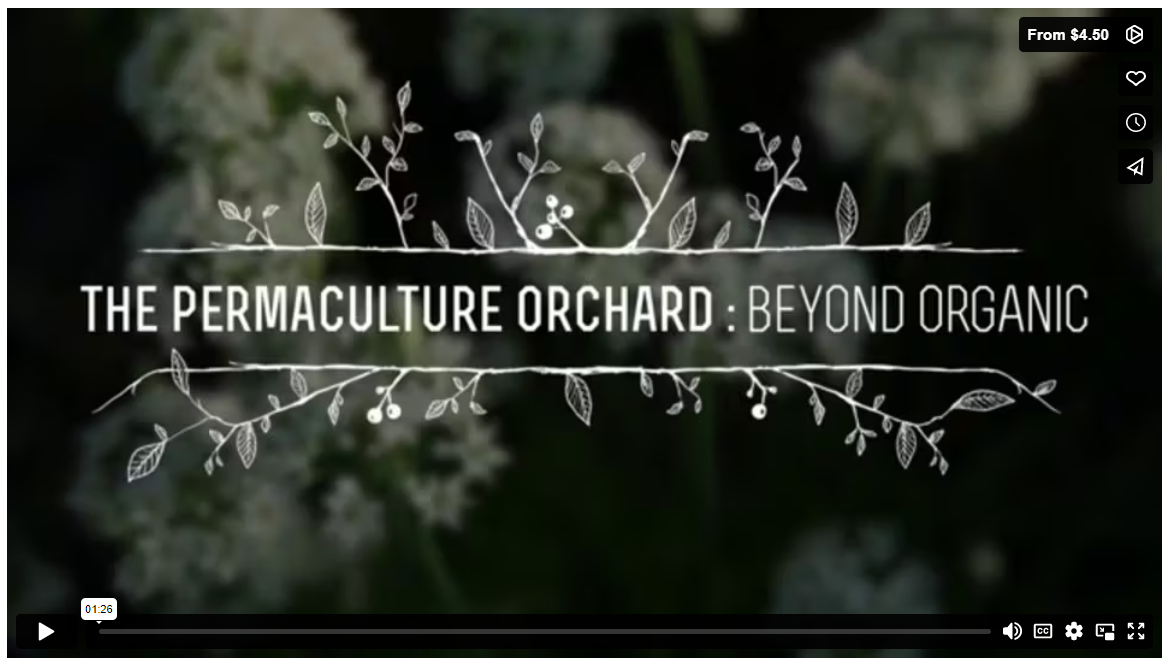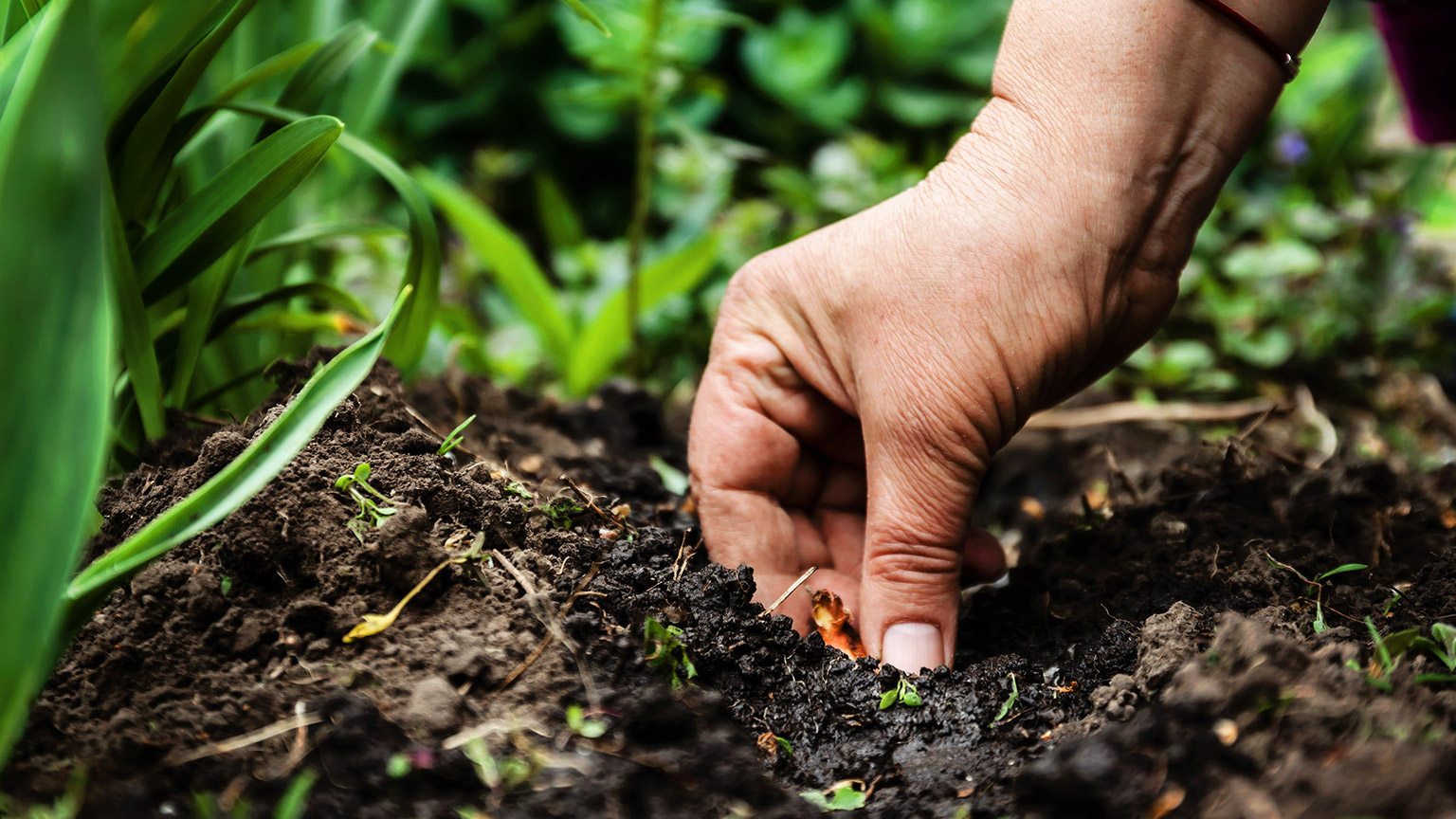
Nau mai, haere mai!
Kia ora, kia orana, talofa, bula, and welcome to NZMA Horticulture Level 3.
Acknowledging tangata whenua
Before beginning, we acknowledge Māori as tangata whenua (the people of this land). We give thanks for their careful kaitiakitanga (guardianship) of the waterways, land, plants, and animals.
In this programme, we’ll explore Māori approaches to growing plants. These approaches are important because they respect and care for Papatūānuku (the earth mother/nature). Te Ao Māori (Māori world view) understands that all living things are connected, and Tikanga Māori (Māori customs and protocols) respects these relationships and works with, instead of against, them.
We hope that by the end of this programme, you’ll be inspired to use these sustainable practices that continue to care for Papatūānuku.
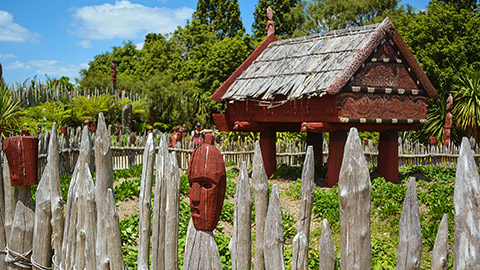
Te Parapara Māori Garden. New Zealand
Hamilton GardensHamilton Gardens is home to Te Parapara — New Zealand's only traditional Māori productive garden. The garden showcases traditional practices, materials and ceremonies relating to food production and storage, drawn from the knowledge of local Māori, which has been passed down the generations.
| Module | Title | Learning Hours |
|---|---|---|
| 1 | Horticulture Basics: Let's Get Started | 40 |
| 2 | Horticulture Basics: Garden Maintenace and Composting | 40 |
| 3 | Plants: How Do They Function? | 105 |
| 4 | Soil: Composition and Properties | 105 |
| 5 | Plant Names and Plant Propagation | 105 |
| 6 | Pests, Diseases, Weeds, and Plant Health | 105 |
| 7 | Plant Care and Water Management | 105 |
About the programme
When you finish this programme you will be awarded the New Zealand Certificate in Horticulture (General) Level 3. This is an official document that you can show to others, like employers, so they can be confident you can:
- apply knowledge of plant and soil science to the identification, selection and growing of plants
- apply knowledge of growing systems and environments to the establishment and growing of plants.
Put more simply, this means that you can grow and look after plants by using the knowledge and skills you’ve developed.
This is a 60 Credit programme, which means it will take about 600 hours to complete.
- If you are studying full-time, you should set aside about 38 hours each week for 16 weeks.
- If you are studying part-time you should set aside about 19 hours each week for 32 weeks.
The time you'll spend will be a mix of:
- online learning – which introduces you to new information
- working on and submitting assessments
- time visiting other horticulture operations – where you’ll learn about different ways of growing plants
- time in the garden – where you get to put this new knowledge into practice.
Student Progression
Here is a snapshot of your student journey to help guide you. Each module's top line indicates the time you should spend on online content and self-directed study. The lines below indicate how long your assessments are expected to take.
Assessments
Assessments will be awarded an achieved or not-achieved result. All learning outcomes must be met to obtain an achieved result. All assessments must be completed in full and/or achieved the pass rate, for an achieved result.
Assessments are recorded as one of two outcomes:
- Achieved – all work/unit has been achieved to the standards set in the assessment and performance criteria.
- Not Yet Achieved – the student has yet to complete the relevant work to be awarded the assessment or unit.
Not quite sure what to do?
If something doesn’t make sense the best thing to do is read the instructions again and maybe even again! To ensure you clearly understand all the tasks and activities required, you may need to read assessment instructions multiple times.
If you are still unsure, your next resource is other students taking this course! Review the forum to see if someone else has asked your question already. If so, it may have been answered already as well. Use the forum to share knowledge with your peers.
Check the Live Sessions in the left-hand navigation column for answers. One of them may be on the very topic you need help with.
Then, if you still need help, you can reach out directly to your tutor via messages on the online campus or via email. They will endeavour to offer assistance promptly.
Please note that this course is designed for students to work and learn independently.
If you need technical help
If you haven't already, we highly recommend that you take our short onboarding course, Ready, Set, Go! It's an entirely separate course that will take you through some of the steps to becoming a confident online learner at NZMA. Your level of comfort as an online learner will determine how long it will take you to complete.
Specifically, check out:
- 4.2 How to get around your online campus (especially the section on Assessments and Hot Tips)
- 5.1.3 IT Support. There are multiple resources to give you the skills you need to submit assessments.
To find it:
If the left navigation menu is not visible, select the hamburger menu (shown by a red box below) to slide it open. Then use the downward arrow to the left of the hamburger menu to show your available courses. Choose Ready, Set, Go! from the list.
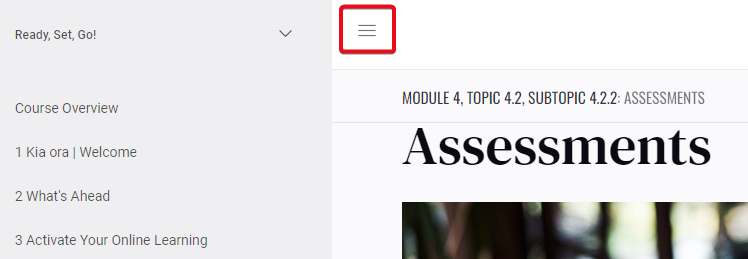
When things don't go as planned in the garden
Firstly, remember, it’s ok to make mistakes. When we make mistakes, we can learn from them by thinking “What went wrong?” and “What can I do differently next time?”. In fact, these are the kinds of questions and answers we’d like to see in your Garden Journal, which you'll read about shortly.
Words and what they mean
In every subject, there are words that have a special meaning, and horticulture is no different. Even the word horticulture means something.
To have meaningful conversations about a topic, everyone in that discussion needs the same understanding of important words. In this programme we use a glossary to highlight the important words used in horticulture. You can find the glossary at the bottom of the module. Download the glossary and add definitions from your own research, in your own words, and use it as a resource going forward.
Learning what these words mean will make it easier to talk to other gardeners, and if you want to get a job in this industry, knowing what they mean will be a big help.
Video resources to extend your learning
The Market Gardener’s Toolkit
The Market Gardener’s Toolkit is an educational film in which small-scale organic farmer, educator and author Jean-Martin Fortier shares the tools and techniques used on his highly productive 1.5-acre farm in Canada. From soil preparation to strategies on dealing with insect pests, discover how this micro-farm manages to generate $150,000 in sales annually without the use of a tractor or any heavy machinery.
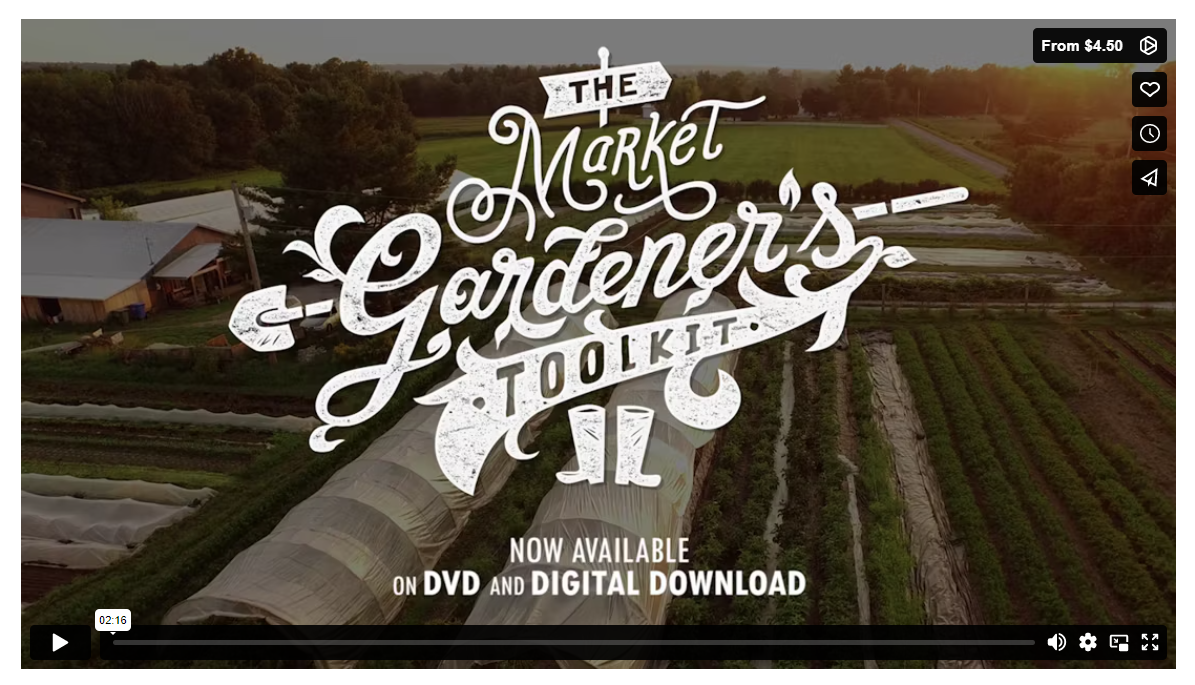
You can buy a digital download copy of this beautifully produced film for US$7.50 (about NZ$12 at the time of writing) from Possible Media.
It is not compulsory that you buy this film, but it is highly-recommended. We point to sections of this film throughout the programme.
The Permaculture Orchard: Beyond Organic
If you only buy one film, we suggest you get The Market Gardener’s Toolkit, but if growing fruit is more of a passion, you might also like to buy The Permaculture Orchard: Beyond Organic.
The Permaculture Orchard: Beyond Organic is an educational film that will teach you how to set up your own permaculture orchard at any scale. Recognising the limitations of the organic model as a substitute to conventional fruit growing, this film proposes a more holistic, regenerative approach based on permaculture principles.
Based on 20 years of applied theory and trial and error, biologist and educator Stefan Sobkowiak shares his experience transforming a conventional apple orchard in Canada into an abundance of biodiversity that virtually takes care of itself. The concepts, techniques and tips presented in this film will help you with your own project, whether it is just a few fruit trees in your urban backyard, or a full-scale multi-acre commercial orchard.
You can buy a digital download copy of this beautifully produced film for US$7.50 (about $12 New Zealand dollars at the time of writing) from Possible Media.

